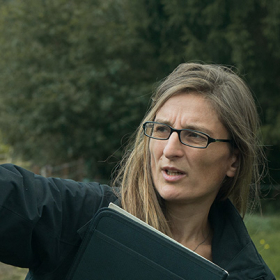

Els B., Principal auditor
“Being an auditor at the European Court of Auditors (ECA) is very interesting. I had the opportunity to work on a variety of different subjects, such as the Galileo satellite navigation system, EU water policy, certification of organic products, renewable energy. Talking to experts in the field is enriching and allows you to understand the nuances of what you are auditing. At the ECA, we are in a privileged position, because we get to see all the pieces of the puzzle: the EU rules, the Commission’s role, how Member States are organised, what beneficiaries need and think, how lobbies or action groups view the situation and what the challenges are to implement a policy.”
Principal auditor, Chamber I – Sustainable use of natural resources, European Court of Auditors

Renée Idzerda, linguistic assistant for the Dutch Translation Unit
After gaining 15 years of experience in the private sector (mainly in internal and external communication), I joined the European Commission in 2013 and took up my current position at Directorate-General for Translation (DGT).
As a translation assistant at the European Commission, you are always in the middle of the news. Whereas in other Directorate-Generals the focus is on one policy area, at DGT all possible themes are covered. And we receive all types of text formats, such as legislative proposals, decisions, speeches, press releases, letters, etc. We are therefore always involved in current EU policy.
As an assistant you are at the service of others: translators, the head of unit, other assistants, etc. There is always someone who needs your help. Moreover, translators work to strict deadlines. Being able to quickly assess what is important, i.e. recognising priorities, is therefore a must. Especially as these priorities can change. In order to deal with unexpected twists in the planning, you need to have talent for organising. Good teamwork and communication with colleagues are also crucial.
As a translation assistant, you have many diverse responsibilities. It is therefore a plus if you like multi-tasking. Moreover, you work very independently: each assistant handles (every aspect of) the translation requests within his or her portfolio. The work is therefore varied. Translators count on you to spontaneously jump in where you can, so that they can focus on their work.
When I started out as a translation assistant, I had a lot to deal with. Fortunately, DGT provides all the necessary training. Moreover, during your induction period you are coached by experienced colleagues, either from your own or from another language department. Continuous training is encouraged. And this is very welcome, because the translation world quickly evolves, also from a technological point of view. Only if you master new applications quickly you can offer the best possible support.
Dutch and Flemish people work together in our department. The working atmosphere is surprisingly informal, more than you might expect from an EU institution. There is a lot of collegiality. This not only ensures that we deliver high-quality translations as a team, but also that it is a pleasure to work here, even in periods of heavy work pressure.
The official language in our department is Dutch, our mother tongue. That is quite special in such an international environment. It makes working together comfortable. We also use other languages - mainly English and French - on a daily basis in our contacts with colleagues from other departments.
As an assistant, you work with people at various levels within the organisation. Strong language and communication skills are therefore essential!
Working as a translation assistant at the European Commission means, above all, helping to steer the work of translators, the head of unit and your fellow assistants in the right direction. In this way, you contribute to the communication with EU citizens.
Linguistic assistant for the Dutch Translation Unit at European Commission (Directorate-General for Translation)
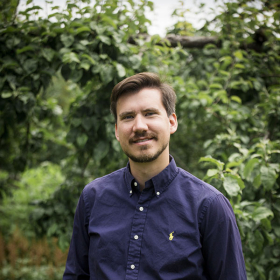
Johannes B., Policy Officer
I am a fundamental rights expert and historian by training. I have been working for the European Commission since 2015, previously as Deputy Coordinator on combating Antisemitism and now as manager for funding programmes on EU values, fundamental rights and European remembrance.
I started my career in DG Education and Culture in the office of the Deputy Director-General. During my 6 years in the European Commission, I have worked in several different departments such as the Youth Policy Unit in DG EAC and the Asylum Policy Unit in DG HOME.
My job is very varied, ranging from presenting EU funding to civil society organisations and ministries, to shaping new funding mechanisms to support the work on combating racism, discrimination and antisemitism, to ensuring close alignment between our policy priorities on equality with the support we can give to stakeholders.
During my graduate degree in Jewish history at the Ludwig-Maximilians University Munich, I spent an academic year as a fellow at the Hebrew University of Jerusalem. I also hold a Master’s in European Studies from the College of Europe in Warsaw (Natolin). I am active in the largest pro-European youth movement, the Young European Federalists, formerly as the chair of the Foreign Affairs Committee. I am an alumnus of the American Council on Germany’s Young Leaders’ Conference and contribute to their working group on Diversity, Equity and Inclusion.
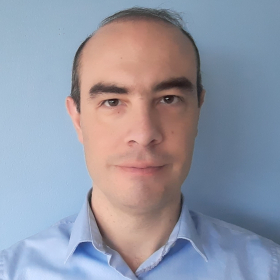
Emmanouil P., IT project manager
"I joined the European Institutions as an official in 2016, after more than 10 years in the private sector in Information Technology domain. Since February 2021 I am a member of the Directorate-General for Innovation and Technological Support of the European Parliament.
In the context of my current post, I am managing Information Technology projects in the promising domain of Digital Workspace and Digital Transformation.
It is inspiring to experience how the IT solutions you manage and your invested effort facilitates the operation of an institution with a complex structure and several thousands of employees and stakeholders.
The overall sense of responsibility that is required, motivates me to strive for excellence, since the output of my work has high visibility and direct impact on the daily work of Members of European Parliament and senior officials of the Institution.
The working environment is exceptional, allows you to take initiatives and utilise your skills and expertise. Management has been supportive, ensuring that you integrate smoothly in European Parliament ecosystem. I particularly appreciate the multicultural atmosphere, interacting daily with colleagues from a variety of European countries.
A wide variety of training opportunities is available and there is investment in professional development, which is a crucial point for a rapidly evolving domain like Information Technology."
IT project manager, Directorate-General for Innovation and Technological Support, Corporate Information Systems, European Parliament

Goran Lucic, lingustic assistant in the Croatian-Slovenian lawyer-linguist tandem team
I started working for the European institutions in 2014, moved around a lot as contract/temporary agent in the Council and the European Commission, before finally joining the Quality of Legislation Directorate (DQL) in 2019 as assistant to lawyer-linguists.
Working in the DQL is quite challenging and interesting at the same time, as we are the final instance before something gets published in the Official Journal of the EU, so we have to be very attentive and have an eye for eventual typos and/or other kinds of mistakes.
The thing about working here that I like a lot is that, although we are in a multicultural environment, in our rather small tandem teams we are in constant touch with our mother-tongue.
Another very important aspect is that, on the one hand, we are not at all micromanaged by the hierarchy, while, on the other hand, managers do take care of their staff's needs by empowering them to get adequate training to guarantee the best possible service.
Lingustic assistant in the Croatian-Slovenian lawyer-linguist tandem team at the Council of the European Union
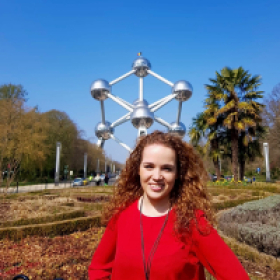
Tessa Pouels González, lawyer-linguist assistant in the Dutch team in the Directorate Quality of Legislation
My name is Tessa, I come from Spain and I work as a lawyer-linguist assistant in the Dutch team.
When I finished my master's degree in legal translation, I thought that my next step would be to work as a freelancer, but I am proud to say that the European institutions offer opportunities to motivated young people eager to be part of the European project.
Working at DQL – where we check the drafting quality of legal acts of the European Council and of the Council – is both challenging and rewarding, as you get to participate and gain an insight into the process of adopting legislation. It is most motivating to be part of a multicultural team with colleagues from different academic, professional and social backgrounds where you are constantly encouraged to continue growing personally and professionally, while benefiting from good working conditions, a wide range of training opportunities and the possibility to change jobs between services and institutions.
If you always wanted an international challenging and interesting career, I highly recommend working for the European institutions. Besides, life in Brussels is enriching and interesting with many activities and events to enjoy.
Lawyer-linguist assistant in the Dutch team in the Directorate Quality of Legislation (DQL) at the Council of the European Union
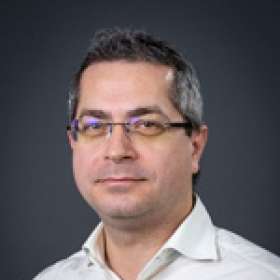
Todor T., Head of Department Central Systems
"Born outside of the European Union, behind what people call "the Iron Curtain", I grew up in times of change. I studied and graduated in the Technical University of Sofia. Shortly after my home country joined the EU and, from one day to the next, I was working in the European Union: it became easier to travel to another country; to work for a foreign company and to live abroad. For several years I worked and lived in the European Union, and now I work for it.
After 7 years of experience in the private IT sector, in 2011 I joined one of the 34 decentralised agencies of the EU as a temporary agent. There I realised that working for the European Union is more than a multicultural experience - it is applying your skills and expertise for the common good of people living in different countries, each of which may have a different way of doing things. As an Application Portfolio Manager my mission was to ensure the proper functioning of the SAP ERP solution in place. With a team of specialists we were analysing updated business requirements and then building and enabling additional features needed.
In 2012 I have participated in an EPSO competition just like this one - the European Union was looking for skilled and experienced ICT specialists, willing to join the lines of its staff. After passing the competition I have joined DG ITEC of the European Parliament, where I still work until today. And organistions are like living organisms - their processes mature; data and capacity grow; projects are created, executed and closed; something always happens and often due to change in priorities.
For the last 8 years I have changed three different roles in DG ITEC - Project Manager, Application Responsible and now Head of Department. Working for the IT department of the organisation representing the interests of 450 million EU citizens is both a responsibility and commitment, where being a good team player is only for starter. It is also an awesome career for a boy who went into IT because of computer games."
Directorate-General for Innovation and Technological Support, Corporate IT Systems Unit, European Parliament

Ann De Wachter, linguistic assistant at the Dutch translation unit
My name is Ann, I am Belgian and I speak Dutch as mother tongue as well as English, French, Spanish and German. I joined the European Commission in 2003 with a temporary contract and became a permanent official in 2005. With good preparation and determination, passing an open competition is certainly not a mission impossible!
Working for the EU has been nothing but a positive experience. You work with enthusiastic, dedicated and competent colleagues. You can constantly develop your professional and personal skills through a large variety of courses. The institutions promote job mobility, so you can acquire experience in different positions throughout your career.
I worked in four different positions before I joined Directorate-General for Translation (DGT) Dutch language department as a linguistic assistant. I like the variety of my tasks and the independent way of working. I can put my language knowledge, eye for detail and practical approach to good use. Good word processing, prioritising and communication skills are also important, as well as a proactive attitude.
In my work for DGT, I deal with different types of texts related to all domains in which the EU is active. I will never forget the process leading to the Brexit-agreement. It took a whole team of translators and assistants to ensure timely delivery of the translations involved. International crises, such as the war in Ukraine, also have an impact on your work. Events like these, both foreseen and unexpected, show how much our work – that of assistants included – is subject to the ins and outs of EU-politics.
I also love working in an international and multicultural environment. When you walk through the building, you see posters and newspapers from different countries. In the elevator or cafeteria, you hear different languages. When you socialize with your colleagues, you learn a lot about their culture and habits. Even though my direct colleagues, from the Dutch language department, all speak Dutch as a mother tongue, comparisons between Flemish and Dutch from the Netherlands can lead to amusing and animated conversations.
Linguistic assistant at the Dutch translation unit at the European Commission (Directorate-General for Translation)
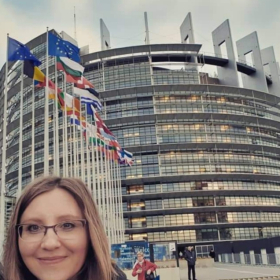
Maja Vuksan Knežević - Translation assistant at the Croatian Translation Unit
I joined Parliament in 2017. Previously, I had worked as a translator in Croatia and my linguistic background helped me to master various tasks involved in this job, but it was not a prerequisite. I work with colleagues from diverse academic and social backgrounds and I am happy to say that I have learned a lot from them, as the work of a translation assistant is very diverse and dynamic.
What I enjoy the most about my job is the feeling of belonging and contributing to the European project – especially given the essential role that the EP's multilingualism policy plays in protecting the cultural and linguistic diversity of the Union. It promotes transparency and understanding – values that are also highly respected in our work environment.
With its wide variety of training opportunities and emphasis on professional development, the EP is a great place to learn and develop. The work environment is welcoming and allows you to take initiative and use your skills and expertise for the greater good, while its multicultural nature gives you an opportunity to meet incredible people from all over Europe who share similar values.
Translation assistant at the Croatian Translation Unit, Directorate-General for Translation (TRAD), European Parliament
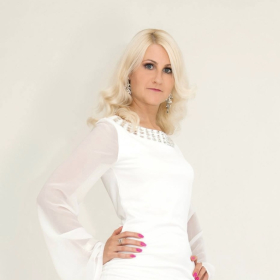
Jana Zhvanko, linguistic assistant at the Estonian Translation Unit
I decided to participate in an EPSO competition for translation assistants; I passed it, and joined Parliament in 2008! Being an open, active and communicative person, I made the most of it and enjoyed every single day of my working life here – and I still do.
My work involves the use of a range of both linguistic and technical skills, which makes it very dynamic. Given that we use a variety of different tools and working methods, and that our technical instruments are always being developed further, there is always room to grow personally and broaden one’s knowledge.
For me, working for DG TRAD at Parliament is like building a linguistic bridge between the political world and the citizens of each member state. The EP’s newest projects bring us closer to people, and help us to connect and interact with them. I see myself as part of a big structure: as it is the case with all complex, multi-faceted mechanisms, every single part of the system is important. Only together do we make it work!
Linguistic assistant at the Estonian Translation Unit at European Parliament (Directorate-General for Translation (TRAD))

